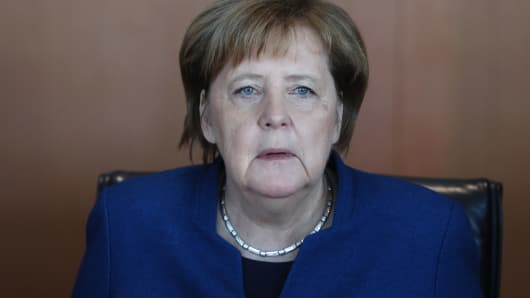Traditionally seen as the powerhouse of Europe, Germany's economy is starting to cause concern with uncertainties over global trade and the car manufacturing industry.
The European Commission, the EU's executive arm, revised down its growth forecasts for the country on Thursday. It's now expected to grow by 1.1 percent this year, from a previous forecast of 1.8 percent. The Commission also lowered its prospects for the euro area as a whole. The region is now set to grow 1.3 percent this year, from a previous forecast of 1.9 percent.
"In the case of Germany we see that there are certainly some short-term factors in play," Valdis Dombrovskis, vice president of the Commission, told CNBC's Willem Marx in Brussels.
"If we discuss global trade tensions, if we discuss the slowdown in emerging economies including China, it's going to affect the economies of countries which are relying on exports to a large extent, and Germany is by far the EU's largest exporting economy," he said.
"So, if there are tensions and uncertainty around trade, of course it's going to affect the exports and it's going to affect the economic growth (of Germany), so this is something that we need to watch very closely," he added.
German bond yields dropped to their lowest level in over two years after the announcement, according to Reuters.





